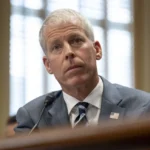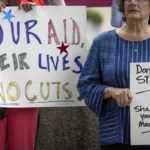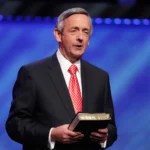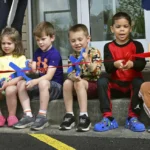WYOMING SCHOOLS AT A CROSSROADS: In Cheyenne, a New Charter School Promises a ‘Classical Education’ (Part 2)
Cheyenne Classical Academy set to launch this fall with curriculum from Hillsdale College
- Published In: Other News & Features
- Last Updated: May 10, 2023
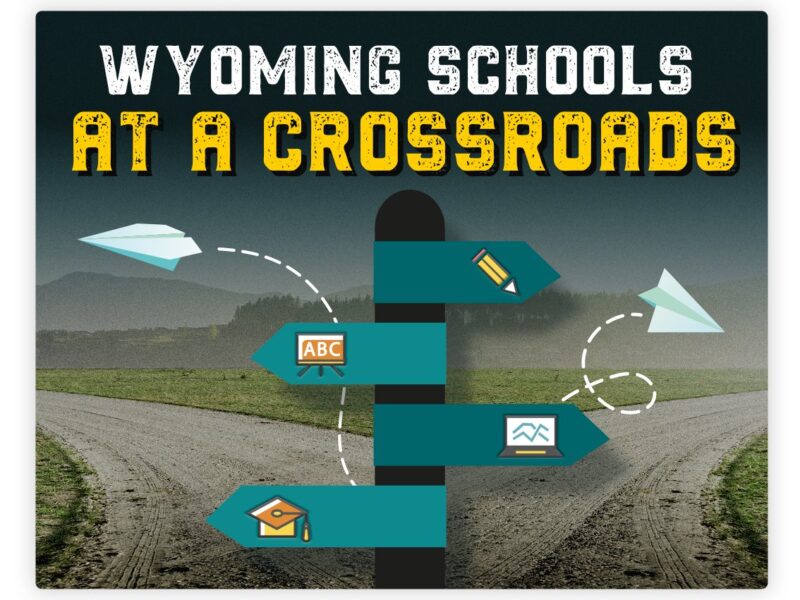
By David Dudley
Special to the Wyoming Truth
This is the second story in a three-part series on charter schools. Check out part one.
Over a decade ago, a private Christian college in Michigan began an effort to “revitalize” public education. Since 2010, Hillsdale College has helped launch and support dozens of new K-12 charter schools offering “an American Classical Education.”

When Bruce Perryman, a longtime community college administrator and educator from Cheyenne, heard Hillsdale leaders’ pitch at a local symposium, he began imagining a way to make a difference in his community.
“The people from Hillsdale spoke about many things that I think are important to educating young people,” Perryman told the Wyoming Truth. “They suggested that we teach cursive writing again. They emphasized the Trivium, which focuses on grammar, rhetoric and logic as the building blocks of a well-rounded education. And they want a return to the accurate depiction of American history. That sealed the deal for me.”
What started as a concept two years ago is set to become reality this fall, as the Cheyenne Classical Academy opens its doors. It’s one of three charter schools — including the Hillsdale-affiliated Wyoming Classical Academy in Casper and Prairie View Community School in Chugwater — that were authorized before a statewide moratorium took effect. Like traditional schools, they’re funded by Wyoming taxpayer dollars and tuition-free, but they have more freedom in how they operate
The pause on new charter schools until 2026 is meant to give lawmakers time to see how they fare and their effect on school districts before more are added. But the school choice movement has continued to gain momentum, including a bill from the Legislature’s recent session that’s intended to streamline the application process for new charters.
Senate President Ogden Driskill (R-Devils Tower) said parents were the driving force behind the new legislation.
“If parents want more choice, we ought to find a way to give it to them,” he said.
Nathan Winters, chairman of the board at Cheyenne Classical, said Wyoming suffers from a dearth of educational opportunities; the Center for Education Reform ranks Wyoming 47th for school choice.

“There are fewer choices per capita in Wyoming than almost any other state in the U.S.,” said Winters, a former state representative and president of public policy at the Wyoming Family Alliance, a Cheyenne-based think tank. “Parents want choice when it comes to finding a school that best fits the needs of their children.”
Offering more choices is not strictly about numbers. For example, in and around Cheyenne, roughly 14,000 students are served through 26 city elementary schools, three rural elementary schools, three junior high schools, three high schools, one alternative high school and a charter school.
Rather, the debate is over differing approaches to educating young Wyomingites. While the Wyoming Education Association and others defend traditional schools and worry about charters siphoning away needed revenue, Driskill is among those who say the state needs to offer options for “a more traditional, conservative education.”
BJ Buchmann, the headmaster at Cheyenne Classical, said the curricula employed in much of the U.S. today fails to teach students the foundation of a classical education, which is to “know thyself.”
“A classical education is rooted in understanding human nature,” said Buchmann, who was the founding principal at two Colorado charter schools and sent his three now-adult sons to charters.
“We have to know ourselves first,” he said. “To do that, we have to know the origins and our character, our purpose in life, our nature. Then, we look at how that fits into the larger context.
What is “classical education?”
The classical education model emphasizes “the seeking after of truth, goodness, and beauty and the study of the liberal arts and the great books,” according to the Classical Academic Press.
Buchmann’s interest in classical education and charter schools was sparked when he began reading the works of author and educator E.D. Hirsch, Jr. in 1994. He was particularly drawn to the concept of Core Knowledge, which includes fundamental lessons in language arts, history, geography, mathematics, science, visual arts and music.
“I felt like it was something that was missing from public education, and I wanted to do something about it,” Buchmann said

Combined with a classical education emphasis, Buchmann said he and his team will help students cultivate virtuous habits from a young age.
“[C]lassical education has always been an education designed to equip people to serve others,” he said. “This service can be to one’s family, one’s neighbor, to love and serve one’s country whether it be in a community or a larger civic-minded responsibility. A classical education prepares all for such service while being humble and virtuous.”
As a part of Hillsdale’s College Barney Charter School Initiative, Cheyenne Classical faculty will teach from the college’s curriculum. Inspired by former President Donald Trump’s 1776 Commission, the lesson plans on American history, civics and governments counter the 1619 Project, a long-form journalism project from The New York Times Magazine.
Both the 1619 Project and the 1776 curriculum have proven controversial. Critics say the 1619 Project distorts historical fact and paints an inaccurate portrait of the role slavery played in America’s founding. And some educators have pushed back against the 1776 curriculum, calling it “revisionist history.”
Josh Thompson, a social studies teacher at Pathways Innovation Center, an alternative school in Casper, said the Hillsdale 1776 Curriculum “claims to teach students how to think, rather than what to think.”
“In fact, it does the opposite,” Thompson said. “The lessons do not teach students how to weigh evidence in order to form conclusions when you have contradicting points of view. It’s dishonest to teach one without the other, and it feeds the idea of American exceptionalism.”
But Winters bristled when asked whether Hillsdale’s curriculum teaches a one-sided version of American history.
“There’s much good in American history,” Winters said. “There are some people in schools throughout the U.S. that focus only on the ugly. We’re not trying to push a narrative. We’re trying to produce the right kind of information and instill into young people the ability to think critically about everything.”
Gearing up for the fall
Cheyenne Classical is in the process of hiring up to 18 teachers, as well as five support staff and two office workers. As of last week, 134 students have expressed their intent to enroll in grades K-5, and Buchmann expects 175-225 by the start of the school year; he hopes to add grades 6-12 at a clip of one grade per year.
Cheyenne Classical has been holding board meetings for the past year, trying to solve the various challenges that come with opening a new school.
Bill McIlvain, a former Wyoming lawmaker and retired educator, is an emeritus member of the board. He helped kickstart the effort two years ago, when he invited Perryman to Hillsdale’s Cheyenne symposium.
McIlvain said the work he’s doing for the academy feels like a natural extension of his work in the Wyoming Legislature decades ago. The board’s current challenge is finding a building, and they’re in discussions to use the old Carey Junior High, where McIlvain taught in the 1950s.
“We want to ensure that parents who want a different kind of school, where their kids can be taught traditional values in a safe place, will have another option,” McIlvain said, adding, “To found this school, which may be in the same building where I started teaching all those years ago, just feels right.”
Check back for part three tomorrow.







